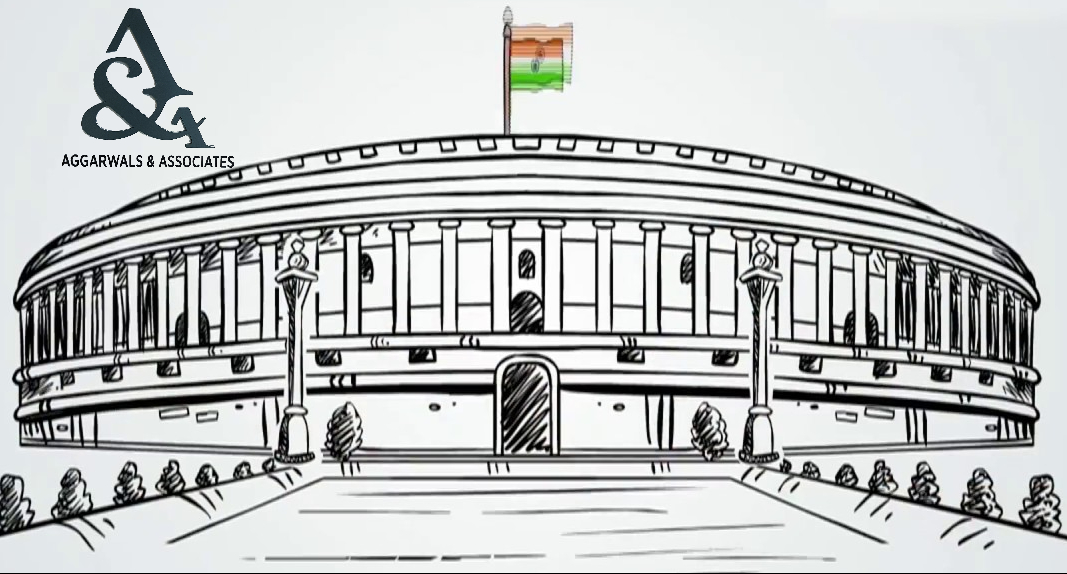This article focused on to unearth varied features of newly enacted legislations by the Parliament of India in its monsoon session. The Rajya Sabha on 20th September, 2020 passed two new farmers bills i.e. The Farmers’ Produce Trade and Commerce (Promotion and Facilitation) Bill, 2020 and The Farmers (Empowerment and Protection) Agreement on Price Assurance and Farm Services Bill, 2020. Both bills were introduced within the Lok Sabha on 14th September, 2020. On 22nd of September, 2020 Parliament passed The Essential Commodities (Amendment) Bill, 2020 so as to bring amendments in The Essential Commodities Act, 1955.
Brief of the diverse provisions of those newly enacted bills is discussed below:-
The Farmers’ Produce Trade and Commerce (Promotion and Facilitation) Bill, 2020:-
This newly enacted piece of legislation will allows the farmers to sell their produce within inter-state beyond the physical premises of APMC markets. State Govt. will be prohibited from imposing any market fee or levy outside the APMC areas. APMC stands for Agriculture Produce Marketing Committee which mainly regulated the agricultural markets in India.
Inter-state trade of farmers’ produce: The basic feature of the bill is that it allows inter-state trade of farmers’ produce outside the premises of markets established by market committees formed and notified under the state APMC Acts. Now a farmer can sell his produce in an outside trade area. Such outside area can be a farm gates, factory premises, warehouses and cold storages.
Electronic trading: An electronic trading and transaction platform may be set up to facilitate the direct and online buying and selling of such produce through electronic devices and internet. Companies, partnership firms or registered societies may establish and operate such platforms under this new bill.
Abolition of market fees: The new prohibits the State governments from imposing any market fee, cess or levy on farmers, traders and electronic trading platforms for trade of farmers’ produce conducted in an outside trade area.
The Farmers (Empowerment and Protection) Agreement on Price Assurance and Farm Services, Bill, 2020:
Farming agreement: The bill provides for agreement between the farmer and buyer for any farm produce. The minimum period of such agreement will be one crop season or one production cycle of livestock. The agreement can be made for maximum period of 5 years, unless the production cycle is more than 5 years.
Pricing of farming produce: The price for farming produce and the process of price determination should be mentioned in the farming agreement. Prices subjected to variation, guaranteed price for the produce and a clear reference for any additional amount above the guaranteed price must be laid out in the agreement.
Settlement of dispute: For settlement of disputes under the bill, farming agreement must provide for a conciliation board as well as conciliation process. At first, all the disputes must be referred to the board for resolution. If the board fails to settle the dispute within 30 days then the parties may approach Sub-divisional Magistrate for resolution. Parties will have a right to appeal before an Appellate Authority against the decision of Sub-divisional Magistrate. Both the Magistrate and Appellate Authority will be bound to dispose of the matter within 30 days from the receipt of application. Both authorities will have liberty to impose certain penalties on the party contravening the agreement. Howbeit, no action can be taken against the agricultural land of farmer for recovery of any dues.
The Essential Commodities (Amendment) Bill, 2020:
Regulation of food items: The new bill empowers the Central Govt. to regularize certain commodities like food items, fertilizers and petroleum products as essential commodities. The Central Govt. may regulate or prohibit the production, supply, distribution, trade and commerce of these commodities. The bill detaches the cereal, pulses, oilseed, edible oil, onion and potatoes from the list of essential commodities. However, the Central Govt. may regulate the supply these food items in extraordinary circumstances such as war, extraordinary price rise, famine and natural calamity of grave nature.
Stock limit: According to the new amendment, stock limit on agricultural produce must be imposed consistent with price rise. A stock limit may be imposed if there is 100% increase in retail price of horticulture and 50 % increase in the retail price in case of non-perishable agriculture food items. Such increase will be calculated over the price prevailing immediately last 12 months, or the average retail price of the last 5 years, whichever is a smaller amount.
-Kiranpreet Kaur
Associate at Aggarwals & Associates, S.A.S. Nagar, Mohali


